NHS
Latest
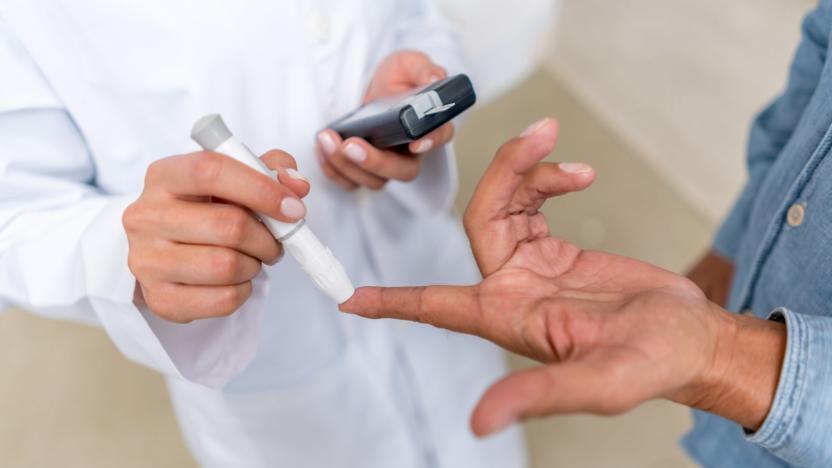
The NHS is turning to tech to help prevent Type 2 diabetes
Last year, the NHS launched a diabetes prevention programme aimed at helping high-risk patients stop or delay the onset of full-blown Type 2 diabetes. NHS England has now announced that it's turning to tech for the second phase of the project, and will pilot the use of digital tools and wearables to further the programme's goal. Eight regions in the UK will aim to recruit over 5,000 patients in total over the next six months to take part in a year-long trial of new ways to tackle obesity and high blood sugar levels, both of which are common precursors to Type 2 diabetes.

NHS starts offering GP appointments via video call
You're often more likely to win a scratchcard jackpot than get a short-notice appointment at your local GP, so it's no surprise there are now a number of services offering nigh immediate, private consultations via smartphone video chat. Babylon Health is one such service that's just become available on the NHS, meaning eligible patients can book a free video consultation and chat to a GP within two hours, and sometimes much sooner. GPs can make referrals, send prescriptions to a nearby pharmacy, and users can rewatch consultations and review the doctor's notes at any time within the app.
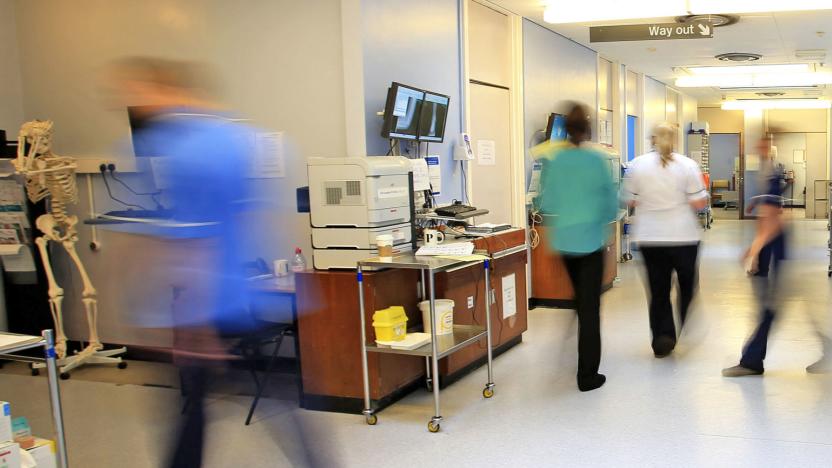
'Basic IT security' could have prevented UK NHS WannaCry attack
England's National Health Service (NHS) could have avoided the ransomware hack that crippled its systems in May, according to a government report. "Basic IT security" was all that was required to prevent the "unsophisticated" WannaCry attack, which affected more than a third of NHS organizations, said the National Audit Office (NAO). The full scale of the incident saw over 19,000 medical appointments canceled, and computers at 600 surgeries locked down.

NHS could trade free cinema tickets for hitting fitness goals
Just as insurers are looking to wearables to motivate people to lead healthier lifestyles, the NHS is now also exploring a scheme that would reward active participants with discounts on shopping, fitness gear and gym memberships, as well as free cinema tickets. The concept programme would use a mobile app to track exercise and encourage people to hit targets in order to earn such bounties. The end goal being, naturally, to promote healthier lifestyles and thus "reduce pressure on the NHS."

High-tech solutions top the list in the fight against eye disease
"The eyes are the window to the soul," the adage goes, but these days our eyes could be better compared to our ethernet connection to the world. According to a 2006 study conducted by the University of Pennsylvania, the human retina is capable of transmitting 10 million bits of information per second. But for as potent as our visual capabilities are, there's a whole lot that can go wrong with the human eye. Cataracts, glaucoma and age-related macular degeneration (AMD) are three of the leading causes of blindness the world over. Though we may not have robotic ocular prosthetics just yet, a number of recent ophthalmological advancements will help keep the blinds over those windows from being lowered.
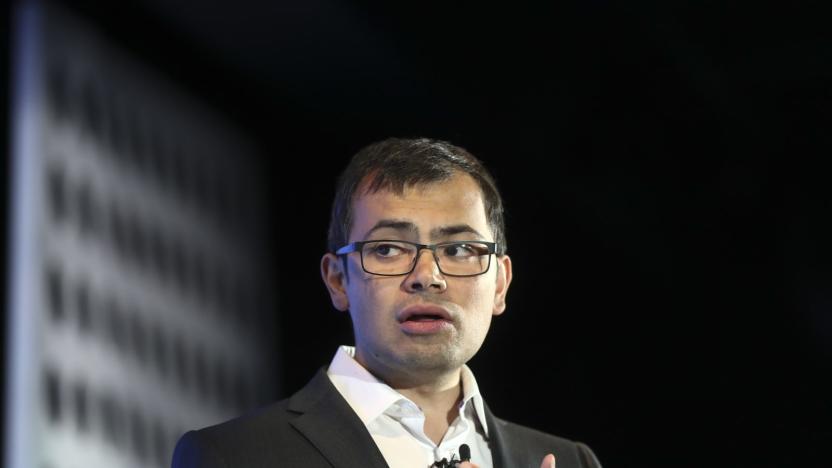
DeepMind’s data deal with the NHS broke privacy law
An NHS Trust broke the law by sharing sensitive patient records with Google's DeepMind division, the UK's data watchdog has ruled. The long-awaited decision falls in line with the conclusion drawn by Dame Fiona Caldicott, the UK's National Data Guardian in May. The pair's agreement "failed to comply" with the Data Protection Act 1998, according to the Information Commissioner's Office (ICO), because patients weren't informed that their information was being used. The ICO also took issue with the size of the dataset — 1.6 million partial patient records — leveraged by DeepMind to test Streams, an app for detecting acute kidney injury.

NHS gave DeepMind patient records on an ‘inappropriate legal basis’
A data-sharing deal between DeepMind and London's Royal Free Hospital Trust was struck on an "inappropriate legal basis," a top UK government advisor has said. In April 2016, NewScientist revealed that the company had received 1.6 million patient records to develop an app called "Streams." While there are strict rules regarding patient data and confidentiality, common law states that consent is "implied" if the information is being used for "direct care." Google's AI division used this line of thinking to justify the deal, however Dame Fiona Caldicott, the UK's National Data Guardian, disagrees because the app was still in testing at the time.

The 'WannaCry' ransomware is a stark reminder of a broken system
In April, a hacking group called The Shadow Brokers dumped a cache of Windows' exploits it pilfered from the NSA. The group had decided to start leaking exploits it stole from the agency after it was unable to find a buyer for the government's hacking tools. Inside that April drop was a remote code execution vulnerability called "EternalBlue" (aka MS17-010). Fortunately, Microsoft issued a security patch that fixed EternalBlue in March. What's not so fortunate is that not everyone had applied it to their machines.

NHS Trusts ignored patch that would’ve averted malware disaster
The ransomware attack that crippled crucial NHS systems across the UK and continues to cause disruption could have easily been contained, according to NHS Digital. The body, which oversees data and IT infrastructure across the NHS, said hospitals and other arms of the service had ample time to upgrade their systems. The 'WannaCry' malware variant used a Windows exploit Microsoft patched in mid-March this year. At the end of April, NHS Digital notified staff and "more than 10,000 security and IT professionals," pointing them to a patch that would "protect their systems." It seems this advisory fell on some deaf ears, which explains why only certain NHS Trusts were affected.

'WannaCry' ransomware attack spreads worldwide (update)
England's healthcare system came under a withering cyberattack Friday morning, with "at least 25" hospitals across the country falling prey to ransomware that locked doctors and employees out of critical systems and networks. It's now clear that this is not a (relatively) isolated attack but rather a single front in a massive digital assault. Update 2 (5/13): In response to infections like the ones that crippled parts of the NHS system, Microsoft is releasing a patch for unsupported systems including Windows XP, Windows 8 and Windows Server 2003.

NHS hospitals in England hit by a widespread cyberattack (updated)
Various NHS Trusts are currently battling with what appears to be a large-scale cyberattack affecting IT systems across the country. According to reports, hospitals and GP surgeries are falling victim to a widespread ransomware attack, causing them to shut down their computer networks. The East and North Hertfordshire NHS Trust was one of the first to acknowledge the problem and switch off its systems, warning locals that they will have trouble getting through on the phone and asking them not to visit accident and emergency unless absolutely necessary. Update: The attack has continued to spread and is now affecting systems around the world. Update 2 (5/13): In response to infections like the ones that crippled parts of the NHS system, Microsoft is releasing a patch for unsupported systems including Windows XP, Windows 8 and Windows Server 2003.

UK trials body cameras for staff in mental health wards
An early trial has found that staff-worn body cameras can reduce confrontation and aggressive behaviour in patients suffering from mental health issues. The pilot ran for three months at Berrywood Hospital, a psychiatric facility in Northampton, England, and was primarily concerned with the "feasibility" of a large-scale bodycam deployment. Researchers wanted to know how comfortable the cameras were, how much training would be required for staff, and how difficult it would be to record and store the resulting data securely. As an aside, the team asked staff to rate the effectiveness of the cameras. The feedback was largely positive.
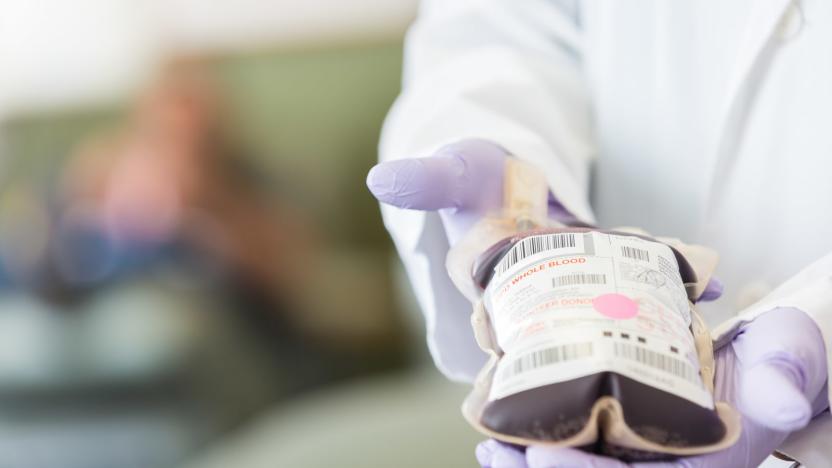
Mass-produced artificial blood is now a real possibility
Doctors dream of having artificial blood always on hand, but the reality has usually been very different. While you can produce red blood cells in a lab, the current technique (which prods stem cells into action) only nets a small number of them at best. British researchers appear to have found the solution, however: they've developed a technique that can reliably produce an unlimited number of red blood cells. The trick is to create "immortalized" premature red blood cells that you can culture as much as you like, making mass production a real possibility.

NHS to use Uber and startup Cera for at-home patient care
Healthcare startup Cera is teaming up with Uber to deliver patient care on the NHS' behalf. The service, launched in November, matches "hundreds" of carers in the UK with the people who need them most. Today, the company is announcing a partnership with the Barts Health NHS Trust -- which runs Mile End Hospital, Newham University Hospital and others -- so that doctors can effectively prescribe the platform and help their patients receive timely care at home. The hope is that such a service will improve patient care while freeing up hospital beds in London.

UK hospital uses VR to reassure children before MRI scans
Entering a magnetic resonance imaging (MRI) machine can be a nerve-wracking experience. You're trapped in a tight space and have to lie perfectly still as loud noises -- produced by the current in the scanner coils -- pepper your eardrums. To help patients, and in particular children, the Kings College Hospital in London has turned to VR. MRI physicist Jonathan Ashmore and technologist Jerome Di Pietro have produced an app that contains a 360-degree video. Slip on a Google Cardboard and you'll see what happens on the day, from arrival to stepping inside the scanner.
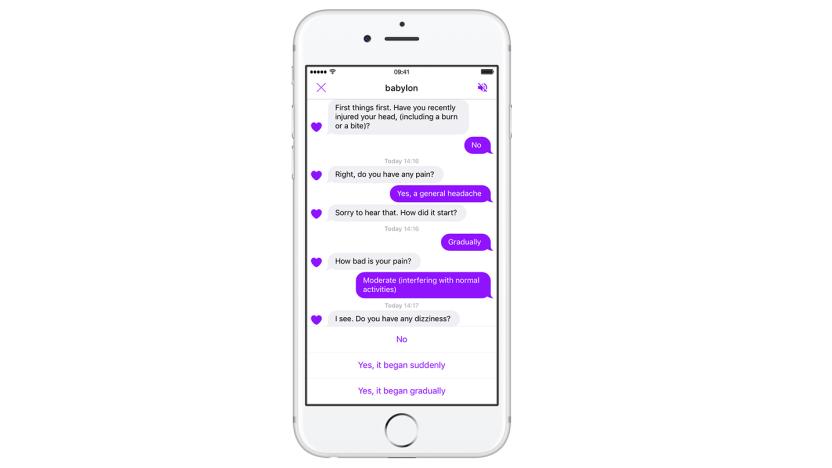
UK health service to trial chatbot that gives medical advice
The UK's National Health Service (NHS) is to begin trialing a chatbot app for dispensing medical advice, with the aim of reducing the burden on its 111 non-emergency helpline. The 111 service went live in 2013, and serves as the first port of call for urgent advice in cases where it's likely overkill to scream for an ambulance right away -- if you've misread a prescription and taken more pills than you should've, for example. The AI-powered app could become another alternative, questioning users about their medical matter and symptoms before suggesting the best course of action.

NHS to use Google DeepMind AI app to help treat patients
Google and the Royal Free London NHS Foundation Trust have announced a fresh five-year collaboration today, which will see the former's DeepMind AI used to improve patient care across the trust's various hospital sites. The partnership will focus on Streams, a mobile app the pair have been working on since late last year that's been approved as a medical device by the UK's health regulator. DeepMind will analyse blood test results as they come in and flag when patients might be at risk of acute kidney injury, proactively alerting carers through the Streams app.

Google bets that smart software will improve health care
Google's DeepMind project has mostly focused on solving high-minded computer intelligence issues. Today, though, it's tackling something far more practical in the short-term: health care. The new DeepMind Health initiative relies on smart mobile apps to deliver medical data to doctors and nurses in time to save lives. The first app, Streams, helps spot acute kidney injuries that would otherwise go unnoticed. There are also plans to integrate technology from a third-party task management app, Hark, to identify patients that are at risk of deteriorating quickly.
![[Image credit: Shutterstock]](https://s.yimg.com/uu/api/res/1.2/zNDPPOgMKOzRlGXBKP6ACQ--~B/Zmk9ZmlsbDtoPTQ2ODtweW9mZj0wO3c9ODMyO2FwcGlkPXl0YWNoeW9u/https://o.aolcdn.com/dims-shared/dims3/GLOB/crop/6000x4000+0+0/resize/1400x933!/format/jpg/quality/85/https://o.aolcdn.com/hss/storage/midas/b0e74b652d548f7427a8081e3625a718/202870427/stock-photo-closeup-detail-of-female-with-an-electronic-cigarette-horizontal-shot-233695804.jpg.cf.jpg)
UK health agency approves first e-cig for clinical use
The long-term effects of vaping won't be known for some time, but despite some cautionary advice and unsettling research into flavourings, the general consensus is e-cigarettes are better for you than the real thing. Many smokers have turned to vaping to help kick (or at least transfer) their habit, and with this in mind, the UK's Medicines and Healthcare products Regulatory Agency (MHRA) recently approved an e-cigarette for clinical use for the first time.

Tinder wants to talk to you about organ donation
If you're hot and horny then there's one thing that's guaranteed to kill the mood stone dead: a long discussion about organ donation. Tinder isn't too worried about harshing that buzz, which is why it's teamed up with the UK's blood and transplant service to raise awareness about the importance of organ donation. For the next two weeks, users will be able to spot celebrity profiles like Olympic gold medalist Jade Jones as well as TV stars Jamie Laing and Gemma Oaten. If you swipe right on any of the three, you'll be greeted with a notification saying "if only it was that easy for those in need of a life-saving organ to find a match."






